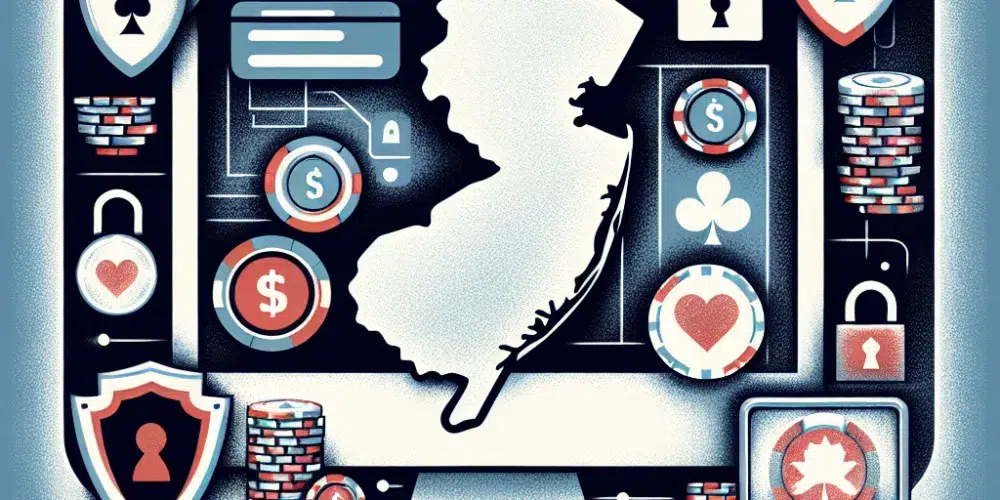New Legislation Aimed at Enhancing Online Gambling Security
In an unprecedented move, New Jersey’s state government has passed a groundbreaking piece of legislation designed to significantly enhance security measures for online gambling platforms. This new law, enacted on March 1, 2024, mandates advanced cybersecurity protocols and continuous monitoring to safeguard user data and prevent fraudulent activities.
Details of the New Cybersecurity Protocols
The legislation requires all online casinos operating within New Jersey to implement state-of-the-art cybersecurity technologies, including real-time threat detection systems and end-to-end encryption for all transactions. The law also stipulates regular audits by independent cybersecurity experts to ensure compliance and efficacy of the security measures in place.
Impact on Online Casino Operators
Operators are now compelled to revise their current security frameworks to align with the stringent requirements set forth by the new legislation. This adjustment involves substantial investment in both technology and training of staff to manage these advanced systems effectively.
Reactions from the Online Gambling Community
The response to the new security measures has been largely positive across various stakeholders within the gambling sector.
Casino Operators Embrace Enhanced Security
A spokesperson from Golden Nugget Online Gaming, one of New Jersey’s leading online casinos, expressed support for the initiative: “We welcome the new legislation as a crucial step towards ensuring a safer gambling environment for our users. Investing in advanced security measures not only helps in protecting our customers but also boosts their confidence in our platform.”
User Reactions to Increased Security Measures
Players have also shown appreciation for the increased efforts towards security. Regular online gambler, Jenna Marston, commented, “Knowing that there are robust systems protecting my personal information makes me feel more secure when playing online. It definitely enhances the overall gambling experience.”
Future Implications of the Legislation
This legislative move by New Jersey sets a precedent that could influence other states to adopt similar measures. The emphasis on cybersecurity in the online gambling sector is anticipated to grow, driven by advancements in technology and increasing awareness of digital threats.
Potential for Nationwide Implementation
Experts predict that the success of this legislation in bolstering security and trust could lead other states to implement comparable laws. Cybersecurity consultant, Dr. Harold Finch, noted, “New Jersey’s approach could very well become a model for the rest of the country, especially in terms of integrating cutting-edge technology to protect consumers.”
Technological Innovations on the Horizon
The introduction of this law is expected to spur innovation in cybersecurity technologies, particularly those tailored to the unique needs of the online gambling industry.
Key Takeaways
The new legislation passed in New Jersey represents a significant advancement in security practices within the online gambling industry. By mandating state-of-the-art cybersecurity measures, New Jersey is setting a high standard that could potentially influence nationwide policies.
FAQs
What does the new legislation in New Jersey require from online casinos?
The legislation requires online casinos to implement advanced cybersecurity technologies, conduct regular security audits, and ensure continuous monitoring to protect user data.
How have casino operators responded to the new security requirements?
Casino operators have been supportive of the new measures, recognizing the benefits of enhanced security in building trust with their users.
Could this legislation influence other states?
Yes, the success of these security measures in New Jersey may inspire similar legislative efforts in other states, potentially leading to nationwide adoption.

David Harrison stands tall in gambling journalism, marrying his firsthand casino experiences with a deep understanding of betting psychology. His articles transform complex gambling jargon into engaging tales of strategy and chance, making the world of betting accessible and enjoyable. David’s knack for narrative extends beyond print, making him a sought-after speaker on gambling trends and future bets. In the realm of gambling, David is both a scholar and a storyteller, captivating readers and listeners alike.
















